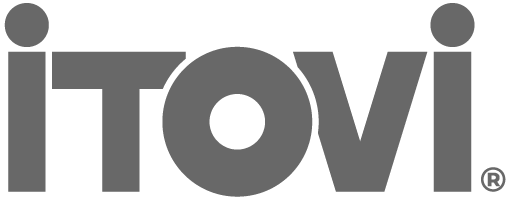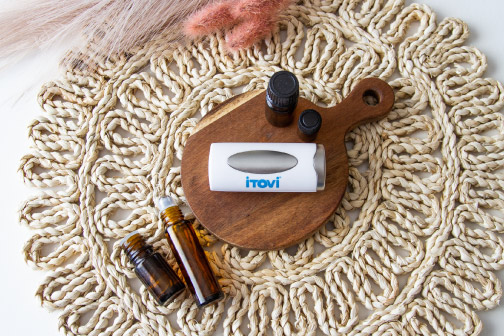
There’s nothing quite as frustrating as the hours or even days when your brain is just…not working as it should be.
It may be an episode of brain fog, listlessness, or a headache. You may be feeling distraction-prone, anxious, or simply out of ideas—but one way or another your brain just isn’t performing to the level you know it can and has done in the past.
It’s like being cut off from your own creativity, vitality, and other essential parts of yourself!
Fortunately, research shows that there are a few core things that you can do to beat a slow-brain day, or prevent them from happening in the first place:
Are you properly rested?
Too little or too much sleep can sabotage your brainpower any day. A healthy adult needs at least 7 hours of sleep (or, more specifically 4-6 sleep cycles) in order to prep your brain for a full day’s work.
If you find yourself facing down a slow-brain day, you can try resetting your brain with a 20-40 minute power nap. But, ultimately, the best thing to do is optimize your sleep schedule, so you sleep deeply and pretty much go to bed and wake up at the same time every day.
Try:
- Creating and closely following a 1-hour, pre-bedtime routine.
- Creating and following a morning routine.
- Optimize your sleeping space with blackout curtains, a white noise machine, a more comfortable mattress, or whatever else you need to optimize your sleep.
- Find more ideas in the iTOVi Healthy Sleep Guide (coming soon!)
Are you properly fueled?
Your diet can have an enormous effect on your daily brainpower—not just because your brain needs fuel, but because the quality of your diet also affects the health of your gut—your “second brain”—which provides your main brain with serotonin and other essential nutrients.
Dehydration, too much sugar, simple carbs, saturated fat, omega-6s, and macronutrient imbalances can all cripple your daily brain functioning!
It takes some discipline and knowledge to maintain a brain-healthy diet. But the difference you will feel will make it 100% worth it!
Get help optimizing your diet with iTOVi DNA!
Are you moving?
Your blood carries fuel (in the form of oxygen, nutrients, and antioxidants) to your brain. So if your blood isn’t flowing fast enough—your brainpower won’t flow optimally either.
Keep your brain well-supplied by:
- Moving. Take ten minutes to go on a walk, do some jumping jacks, do some yoga stretches, a quick run, or whatever else you prefer to do to get your blood running.
- Hydrate. Blood doesn’t flow without water. And, if you know how to do so safely, you might consider adding a drop or two of invigorating essential oils to your water!.
- Cool down. A cooler body will run your blood faster. Drink cold water, suck on some ice cubes (but avoid sugary drinks), turn on the fan, step outside, or find another way to cool down.
- Get some sunlight. Sunlight signals your brain to get moving, and it has the added bonus of providing your body with much-needed Vitamin D.
- Listen to some pump-up music. As your mind attunes to the music, your blood flow will increase to match!
- Chew gum. The act of chewing will help get the blood flowing in your head.
- Check out more tips on our Brain Flow Blend page.
Are you stressed?
Stress builds up cortisol in your brain and too much cortisol makes it harder for your brain to work at full capacity—so it turns out, sometimes the best thing you can do for your brain is to give it a break!
Take some time to stop and reconnect with yourself and your body. You might try:
- 20 minutes of aromatherapy-enhanced meditation
- A vagus nerve massage
- A quick nap or nature walk
- A relaxing craft, exercise, or other hobby
- Whatever else helps you relax and reset your mind.
Are you connected?
A lack of social connection takes its toll on our moods, our health, and our brainpower. (And, no, browsing on social media doesn’t count towards getting your fill of live, social interaction.)
In the short term, you can call up a friend or family member to catch up. But it’s even better to arrange a face-to-face, in-person meet-up!
- Go out for the evening with one or more friends/loved ones (dinner, movie, hike, fireworks, sight-seeing, chat at the park, you name it!)
- Invite one or more friends/loved ones over for a night in (dinner party, movie night, board games, shared project, you name it!)
- Take a local class or join a local club to meet new people (exercise, art, language, basket weaving, you name it!)
- Volunteer locally. (Soup kitchens, churches, animal shelters, etc)
Are you challenging yourself?
We all need to give your brains some regular exercise—because if we’re not being challenged and growing, we start to stagnate and decline!
Fortunately, there are lots of ways you can challenge yourself:
- Memory and vocabulary games
- Brain teasers, including logic puzzles, sudoku, & crossword puzzles
- Learning new subject material
- Lateral thinking exercises
- Learning a new language, skill, hobby, or instrument
- Keeping up on current events
- And more!
Are you spiritually fulfilled?
Even if we have all our other needs met—we all need some sense of purpose, meaning, and direction in life because not having it leads to feelings of apathy and listlessness that eventually take their toll on our brain health.
You don’t necessarily have to be religious or adopt any particular philosophy, but you do need to be actively pursuing a spiritual connection of some kind. This can include a sense of connection to a specific deity, the universe, the earth, or the human family as a whole.
Note that we said “actively pursuing”—exploring, trying, questioning, feeling, etc. Even if you don’t “find” a particular doctrine, creed, or tradition that you want to commit to, the ongoing search will leave you feeling more fulfilled and make your brain more healthy.
Interestingly, the religious practices of praying, singing, meditating, and/or chanting (even when unattached to any formalized philosophy) can lower anxiety, improve sleep quality, and even increase the valuable brain matter of your prefrontal cortex!
Other suggestions to support brain health:
- Exercise regularly. This is one of the best things you can do for the long-term health of your brain, but you may start to notice results within just a few days!
- Reduce the number of toxins you take in through the air, your food, and household cleaning materials.
- Eat fish and/or consume omega-3 fish oil.
- Consume high-antioxidant foods like berries.
- Increase your self-awareness so you can know sooner and more accurately what your brain and body need to be healthy. Regularly scanning yourself with the iTOVi Scanner and looking for trends will help you increase your self-awareness.
Class Ideas:
|




